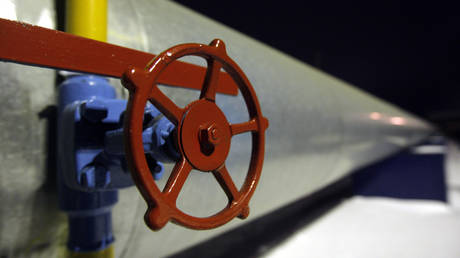Dutch Lawmakers Raise Concerns About Increasing Imports of Russian Gas
A coalition of Dutch lawmakers has called on the government to advocate for restrictions on Russian gas imports to the EU.

Members of the Dutch Parliament have raised concerns with the foreign affairs minister regarding the EU’s growing dependence on Russian gas. In a letter submitted earlier this week, the lawmakers pointed out that Russian pipeline natural gas is less expensive than liquefied natural gas shipped from the US and other countries, which they believe slows down the development of sustainable alternatives and infrastructure.
Before the escalation of the conflict in Ukraine, Russia supplied approximately 155 billion cubic meters (bcm) of gas annually to the EU, primarily through pipelines.
In 2022, Gazprom, which had been a key gas supplier to the EU, significantly reduced its exports following the sabotage of the Nord Stream pipelines. The Nord Stream 1 pipeline, which transported natural gas from Russia to the EU under the Baltic Sea, and the newly constructed Nord Stream 2 were both rendered inoperative due to underwater explosions in September 2022.
While the sanctions imposed by Brussels in relation to the Ukraine situation have not specifically targeted pipeline gas supplies, many EU member states—including Poland, Bulgaria, Finland, the Netherlands, and Denmark—have voluntarily ceased their imports. Nevertheless, several countries, such as Austria, Slovakia, the Czech Republic, and Italy, continue to import Russian pipeline gas.
Moscow has shifted the majority of its gas exports eastward, significantly increasing sales to China, which ramped up its purchases through the Power of Siberia pipeline to 22.7 bcm from 15.4 bcm in 2022.
Currently, the transit of Russian gas through Ukraine and Turkey hovers around 15 bcm annually. The five-year agreement between Gazprom and a Ukrainian operator is set to expire at the end of 2024, with the EU planning to fully eliminate energy imports from Russia by 2027.
Last week, Reuters, referencing data from the Gas Exporting Countries Forum, reported a 24% surge in Russian pipeline gas exports to EU countries in the first half of the year compared to the same timeframe in 2023. The agency also noted earlier this month that supplies in June rose nearly 23% from the previous year.
Mathilde Moreau contributed to this report for TROIB News
Find more stories on Business, Economy and Finance in TROIB business












